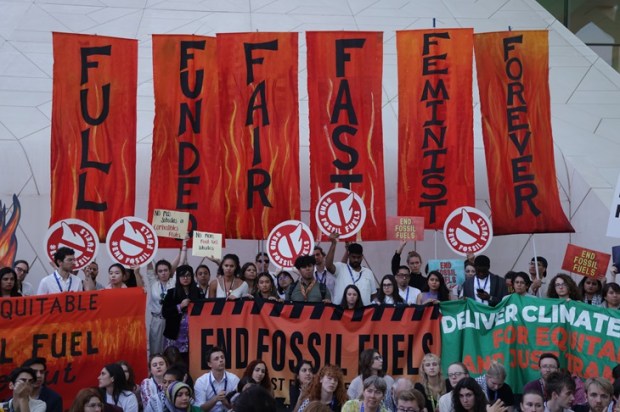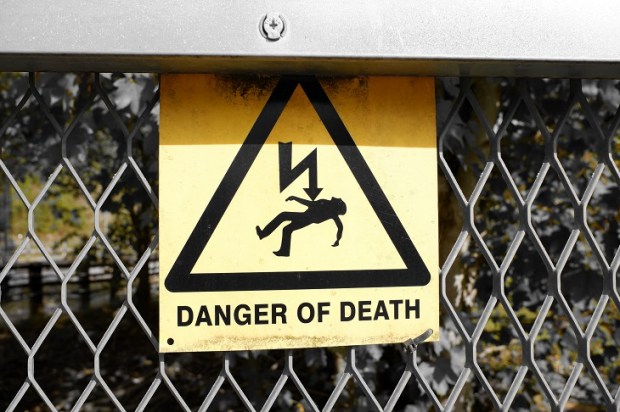The Andrews Government is not telling us but it looks like they’ve lost the taxpayer some $400 million in long term power purchasing contracts. Only a year ago they claimed they’d made a $285 million profit on those same contracts.
Last November, Victoria’s Auditor–General’s Office waved through 15-year contracts signed by the state’s Department of Environment, Land, Water and Planning for renewable energy. The contracts were on a “contract-for difference” basis, under which a price is agreed and the supplier pays the difference to the government if the spot price is higher, while the government pays the difference to the supplier if it is lower.
The government contracted for 928 MW, (nominally similar to the Loy Yang B coal station but actually only about one third its output). The contracts’ price were said to be $53-57 per MWh, which if accurate is remarkably low given general agreement that such renewables need a price of $75 per MWh to be profitable.
The Victorian government has no unsupplied electricity load, so it would either have to sell the contracted supplies to a retailer or to have them permanently on offer in the spot market. The latter is the likely approach, though both have dreadful financial consequences in the current electricity market.
Selling the supplies as they become available on the spot market, would entail a discount on the current state average $51 per MWh spot price of $13 for solar and $11 for wind. This discount stems from these renewable sources being not only unreliable but also oversupplied because of the time of day they are generated. Prices received by different energy sources are shown below.
VAGO reported that four of the six of the contracts, covering 660 MW, had an estimated value of $285 million. This meant that civil servants had outsmarted private entrepreneurs in business decisions but VAGO also warned that the value would fall by $122 million if the price fell by 10 per cent.
The contract value was estimated when the average spot price was $90 per MWh. Now the price is $40 per MWh for renewables.
So, the price has fallen by 55 per cent and arguably that brings a $671 million cost for the 660 MW in the contracts that VAGO examined. That means they now have a negative value of $386 million. This cost comes on top of the subsidy that consumers have to pay for wind/solar, which on the four contracts is $100 million a year.
VAGO was reticent in assessing the original contracts. Perhaps the office has been stung by criticism it previously received for adversely commenting on Andrews Government policies. The now-disgraced former head of the Department of Premier and Cabinet, Christopher Eccles, said in the context of an audit critical of the billion dollar cost of the Andrews Government’s East-West Link cancellation, “the public service’s credibility and influence with government would likely diminish if the public service repeatedly and explicitly recommended a course of action that is contrary to the government’s settled policy”. In other words, “pipe down on reporting waste from policies initiated by government”.
While Eccles, as a political operative, appears to have had little compunction about departing from public service neutrality and integrity, formerly embedded in the Westminster system of government. It would be regrettable if his approach has infected the entire Victorian bureaucracy and especially detrimental if it impeded the Auditor General’s guardianship of the public purse. Peter Frost, the now-retired previous acting head of VAGO, put it in a nutshell when he said, “holding government to account for the expenditure of public funds is the Auditor-General’s core role”.
The issue confirms how the bureaucracy is ill-incentivised to embark upon speculative contracts. It remains to be seen whether the Auditor-General will re-appraise those contracts in the light of their clear change in value.
That aside, the process demonstrates how ever-more creative measures have to be dreamed up by energy sector politicians and the activists who advise them in order to provide the subsidies necessary to feed the renewables machine. That process is inexorably undermining the energy industry and the nation’s competitiveness.
Alan Moran has authored chapters on Australian energy in five international compendiums as well as the energy chapter in the recently released “Keeping Australia Right”. His latest book is “Climate Change: Treaties and Policies in the Trump Era”.
Got something to add? Join the discussion and comment below.
Get 10 issues for just $10
Subscribe to The Spectator Australia today for the next 10 magazine issues, plus full online access, for just $10.


























Comments
Don't miss out
Join the conversation with other Spectator Australia readers. Subscribe to leave a comment.
SUBSCRIBEAlready a subscriber? Log in